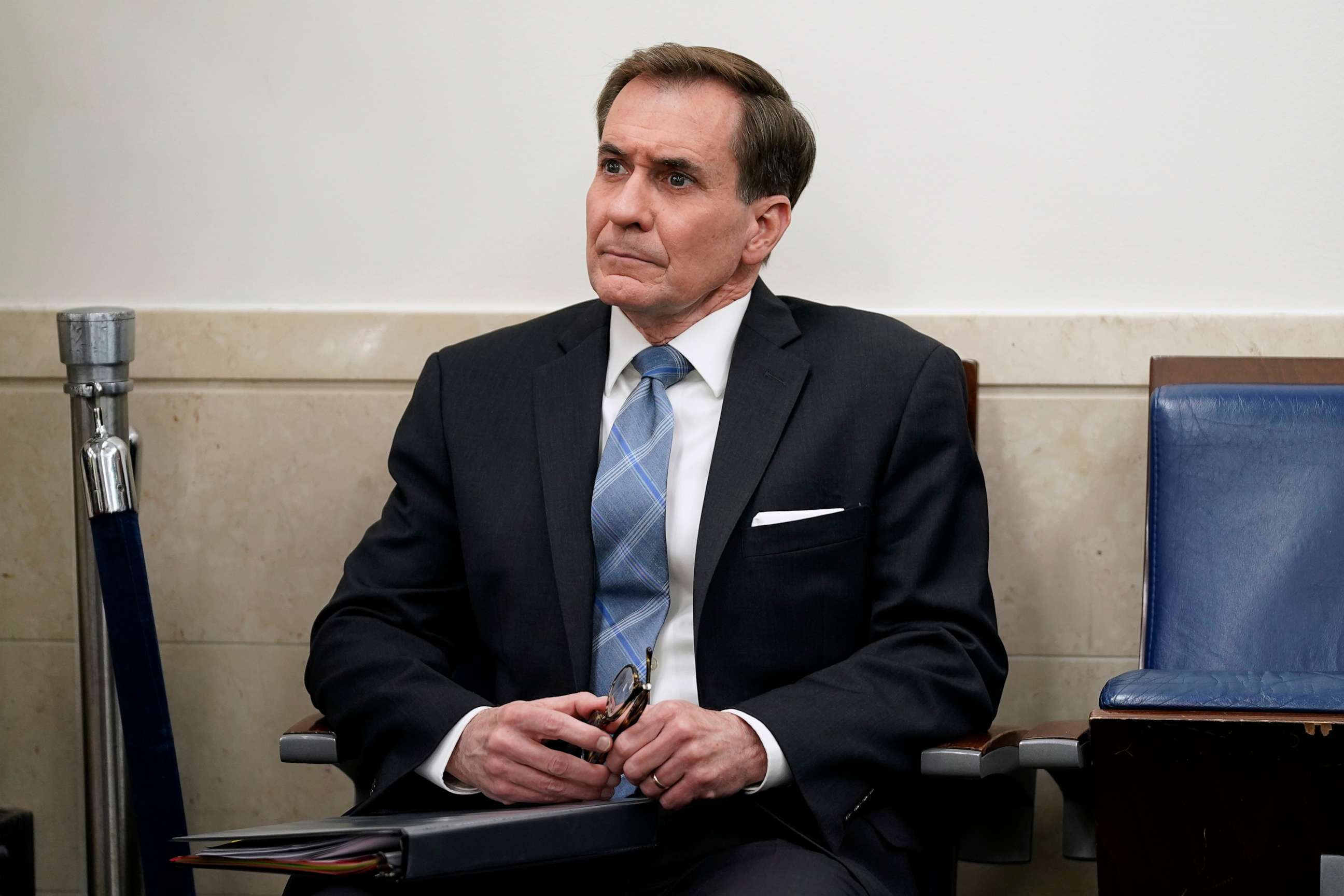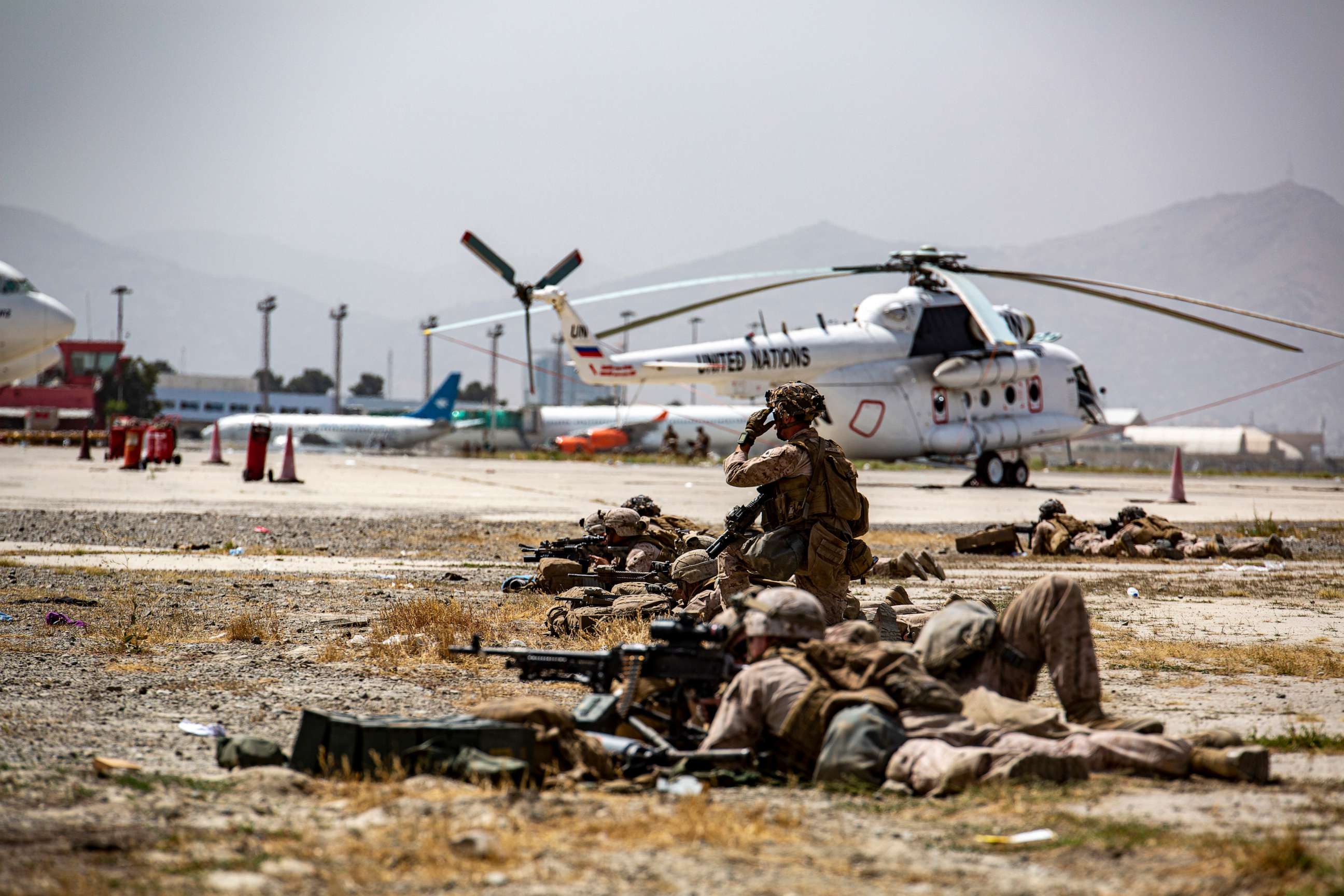Biden admin acknowledges mistakes in Afghanistan exit but defends decision to leave
President Joe Biden takes responsibility for the outcome, a spokesman said.
The Biden administration has indirectly acknowledged that America's controversially chaotic evacuation from Afghanistan in August 2021 could have occurred sooner and that the risks of a Taliban takeover could have been more effectively broadcast before the group overran the Afghan government.
These admissions were made in a 12-page unclassified summary of a government review of the withdrawal, released on Thursday to accompany the announcement that the Pentagon and State Department will be sharing with Congress their own after-action reports on the 2021 military exit.
The unclassified summary of the withdrawal review contains references to two subsequent policy changes that indicate the administration should have begun the evacuation of Americans sooner and that the risks of a Taliban takeover should have been better communicated.
"We now prioritize earlier evacuations when faced with a degrading security situation," the summary states after providing a detailed description of the accelerated withdrawal that began shortly after the Taliban neared Kabul, the capital. "We did so in both Ethiopia and Ukraine."
The summary also notes that the administration could have done a better job of sharing the risks involved if the insurgency returned to power.
"In a destabilizing security environment, we now err on the side of aggressive communication about risks," the summary states. It points to the successful release of unclassified intelligence warning of the Russian invasion of Ukraine before it occurred last year, which helped the U.S. and allies plan "the swift execution of our response, and enable Americans in Ukraine to depart safely. "
At a White House briefing on Thursday, National Security Council spokesman John Kirby made clear that the Biden administration still believes ending the war in Afghanistan was the "right" decision and that the administration was left with limited options because of what they called the lack of planning by the Trump administration.
"First, and most critically, the president's decision to end the war in Afghanistan was the right one," Kirby insisted at the top of his remarks.
Overall, he said, President Joe Biden took responsibility for the outcome of the withdrawal -- both the tragedies and the successes.
"He's the commander in chief and he absolutely has responsibility for the operations that our men and women conduct and the orders that he gives. And he continues to believe that the order to withdraw from Afghanistan was the right one," Kirby said.

Still, Kirby and the report both placed plenty of blame on the Trump administration for, in their telling, putting Biden in a bad position regarding Afghanistan. (Trump, for his part, has taken the opposite view, saying in 2021: "Biden’s botched exit from Afghanistan is the most astonishing display of gross incompetence by a nation’s leader, perhaps at any time.")
"While it was always the president's intent to end that war, it is also undeniable that decisions made and the lack of planning done by the previous administration significantly limited the options available," Kirby said Thursday. "Thus, President Biden's choice was stark: either withdraw all our forces or resume fighting with the Taliban. He chose the former."
"Despite having his options curtailed, President Biden led a deliberate, rigorous and inclusive decision-making process that was responsive to facts on the ground," Kirby added. "In fact, President Biden directed his top national security leaders to begin planning for withdrawal even before he had made the final decision to leave Afghanistan."

Kirby also maintained that some of the intelligence Biden received on the state of the Afghan government was faulty or flawed.
"There were some assessments passed to him that proved faulty, that proved to be wrong, that proved to not shake out the way he had been given to understand that they would," he said.
He said the failures surrounding Afghanistan -- from which the U.S. and allies executed a hasty exit as the Taliban overtook the capital -- informed the administration's approach to dealing with the crisis in Ukraine.
"I should note here that our experiences in Afghanistan informed our decision to set up a small group of experts for worst-case scenario planning on Ukraine, which included simulation exercises, and our ability to forcefully and plainly speak publicly about the risks we saw of impending invasion," Kirby said.

"Now, look, there's always going to be tension between highlighting warning signs that a country may collapse and undermining that same government. And that's a difficult balance to strike," he said. "But in Ukraine, and before that, in Ethiopia, for that matter, we prioritized earlier drawdowns of our personnel when each of those capitals were under threat."
Kirby appeared to choke up when pushed on the conclusion that without a permanent, expanded military presence, nothing would have prevented the Taliban from taking control. ABC News Senior White House Correspondent Mary Bruce asked what his message was to veterans and families of the dead who may wonder if their service was worth it.
"Just because the mission changed over time, under previous administration and leadership and scenarios, doesn't mean that anybody who served in Afghanistan doesn't have something to be proud of doesn't have, doesn't have -- sorry -- doesn't have service to this country that they can take with them the rest of their lives and feel honorable about it," he said.

The after-action reports are also being provided to lawmakers via a secure portal so members can access them electronically, according to a U.S. official.
The Republican-led House Foreign Affairs Committee has been investigating the withdrawal, including issuing subpoenas of the Biden administration.
"This review was an important step to inform future DoD decision-making, and we will continue to support other reviews, including the Afghanistan War Commission's efforts to review the full 20 years of the war," Secretary of Defense Llloyd Austin said in a statement. "I strongly believe that a thoughtful and comprehensive examination of the entirety of America's longest war by the Commission will be an important contribution to the nation."
At the briefing, Kirby would not promise to release more of the government's assessment to the public, insisting the release even of the 12-page, heavily curated narrative was "an extraordinary step."




